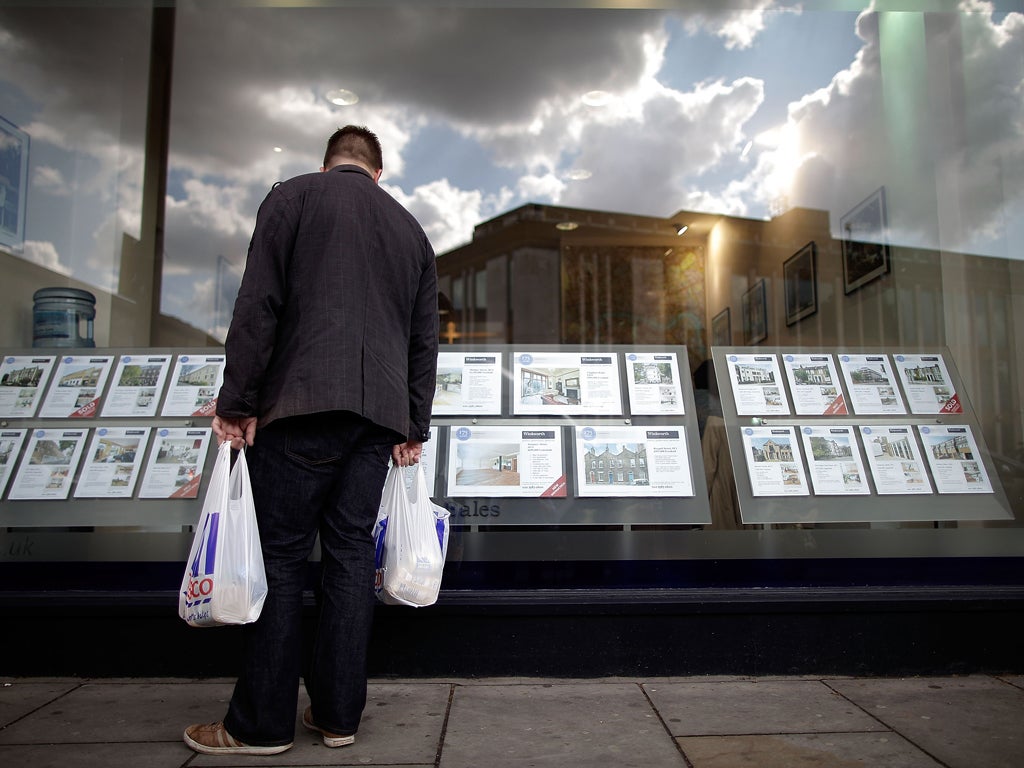Julian Knight: This could be the year Britain abandons the dream of being a nation of property owners

Your support helps us to tell the story
From reproductive rights to climate change to Big Tech, The Independent is on the ground when the story is developing. Whether it's investigating the financials of Elon Musk's pro-Trump PAC or producing our latest documentary, 'The A Word', which shines a light on the American women fighting for reproductive rights, we know how important it is to parse out the facts from the messaging.
At such a critical moment in US history, we need reporters on the ground. Your donation allows us to keep sending journalists to speak to both sides of the story.
The Independent is trusted by Americans across the entire political spectrum. And unlike many other quality news outlets, we choose not to lock Americans out of our reporting and analysis with paywalls. We believe quality journalism should be available to everyone, paid for by those who can afford it.
Your support makes all the difference.Despite the economic slowdown, the eurozone crisis and surging unemployment, UK house prices rose by 1 per cent during 2011, according to the Nationwide.
That's quite some performance at first glance and confounds most predictions at the start of the year (although calling the housing market is as tricky as herding cats).
But remember; set against this 1 per cent is inflation at 5 per cent so, like most assets, property has declined in real terms. What's more, the market – four years on from the start of the credit crunch – is still being propped up to a greater degree than at any time in the past. Interest rates are negligible and being kept artificially low, there are more mortgages available now than there have been since 2007, there is a stamp duty holiday in place, home information packs have gone and, crucially, lenders have generally taken a more understanding approach to arrears. Kick a couple of these props away and 1 per cent price growth will seem like a dream.
In essence, the UK housing market is in a phoney war. There are pitifully few transactions and many that do go ahead are cash, buy-to-lets, at the top end of the market or being supported by developers. London and the South-east are leading the market but in other areas the picture is very different. In fact the lot of most house owners is actually a pretty miserable one.
Houses aren't selling in many regions and despite a correction in prices many of those who bought in the boom paid far more than the properties are worth. Technically they may not be in negative equity because there are so few transactions taking place to benchmark against. If you live in parts of the North and West to get a real idea of what your home might be worth don't look on Rightmove or in the local estate agency window – these are asking prices – check out the property auctions.
This year is shaping up to be even more troubling. If the eurozone crisis gets worse then we will see another credit crunch at the same time that the recession will claim more jobs and force substantially more homeowners into arrears. The banks, no longer able to hold the line on arrears as the economy heads south, will have to foreclose, bringing more properties into auction halls. Too few buyers for too many properties spells house-price deflation. The phoney war will be over.
Yet this is just one possible scenario for 2012. There is a chance the eurozone shake-out will be managed and, with the US showing signs of renewed economic health, the world economy may not be so bad. This means that unemployment, although higher, won't be dramatically so and there won't be pressure on banks to foreclose. In short, the status quo since 2007 will stay in place. But as I have said many times it's incredibly difficult to predict house prices in a year's time.
Longer term, though, I think we could be seeing the ebbing away of the Thatcherite model of owner occupancy. Twenty or thirty-somethings may still say it's an ambition to be property owners, but when I hear them say so it often feels like a knee-jerk reaction; a result of social conditioning that implies that you aren't a fully paid up member of society without a property.
But the disadvantages of stepping on to the property ladder now and for years to come seem to outweigh the rewards. It makes you less flexible for work: if you lose your job and are unable to pay the mortgage not only are you made homeless, but you have a ruined credit record.
In the North and West, who knows what the cultural hangover will be of a decade or more of a moribund market or even another crash. This could be the year when Britain starts to move away from being a nation of house buyers and that (with proper rental market regulation) would be no bad thing.
Join our commenting forum
Join thought-provoking conversations, follow other Independent readers and see their replies
Comments